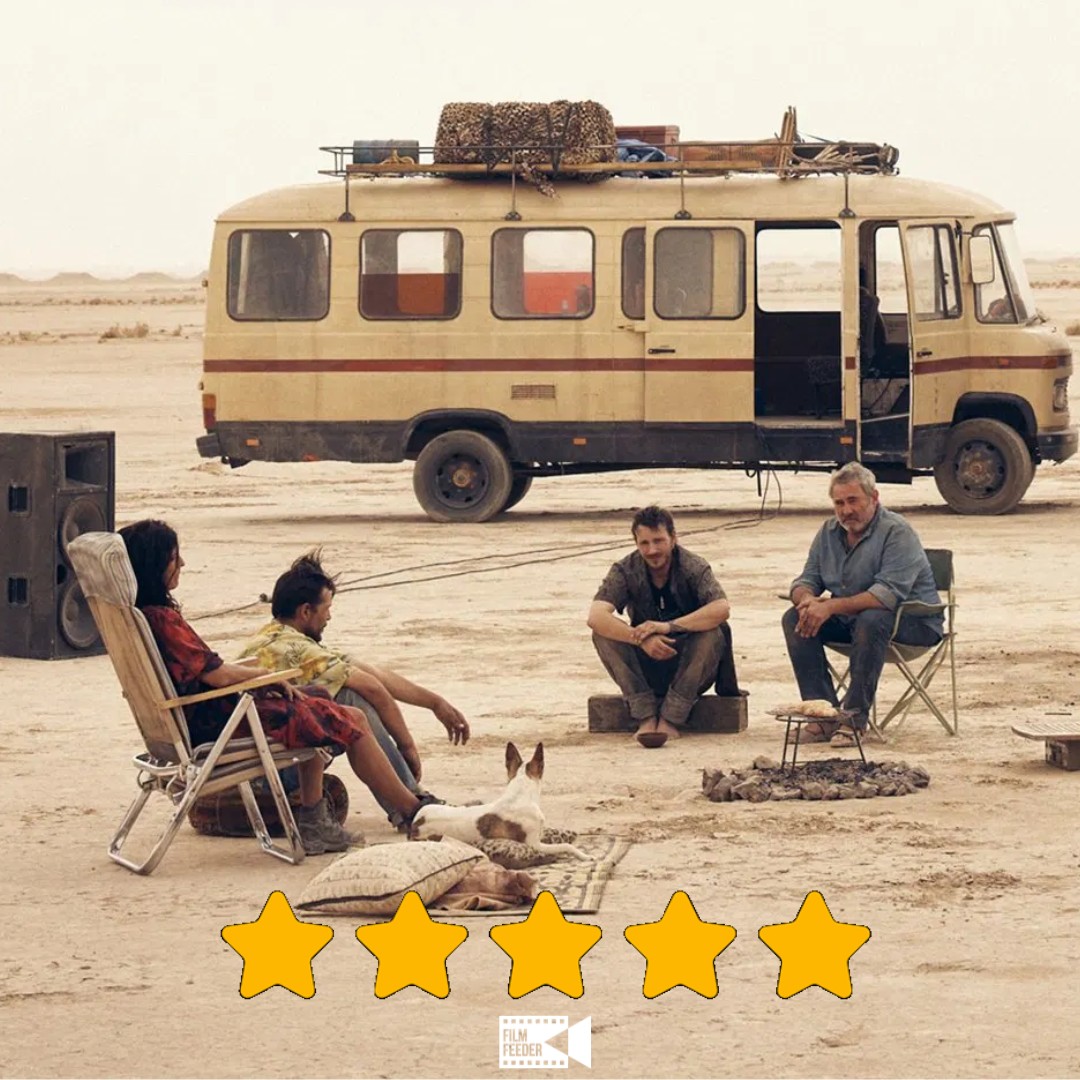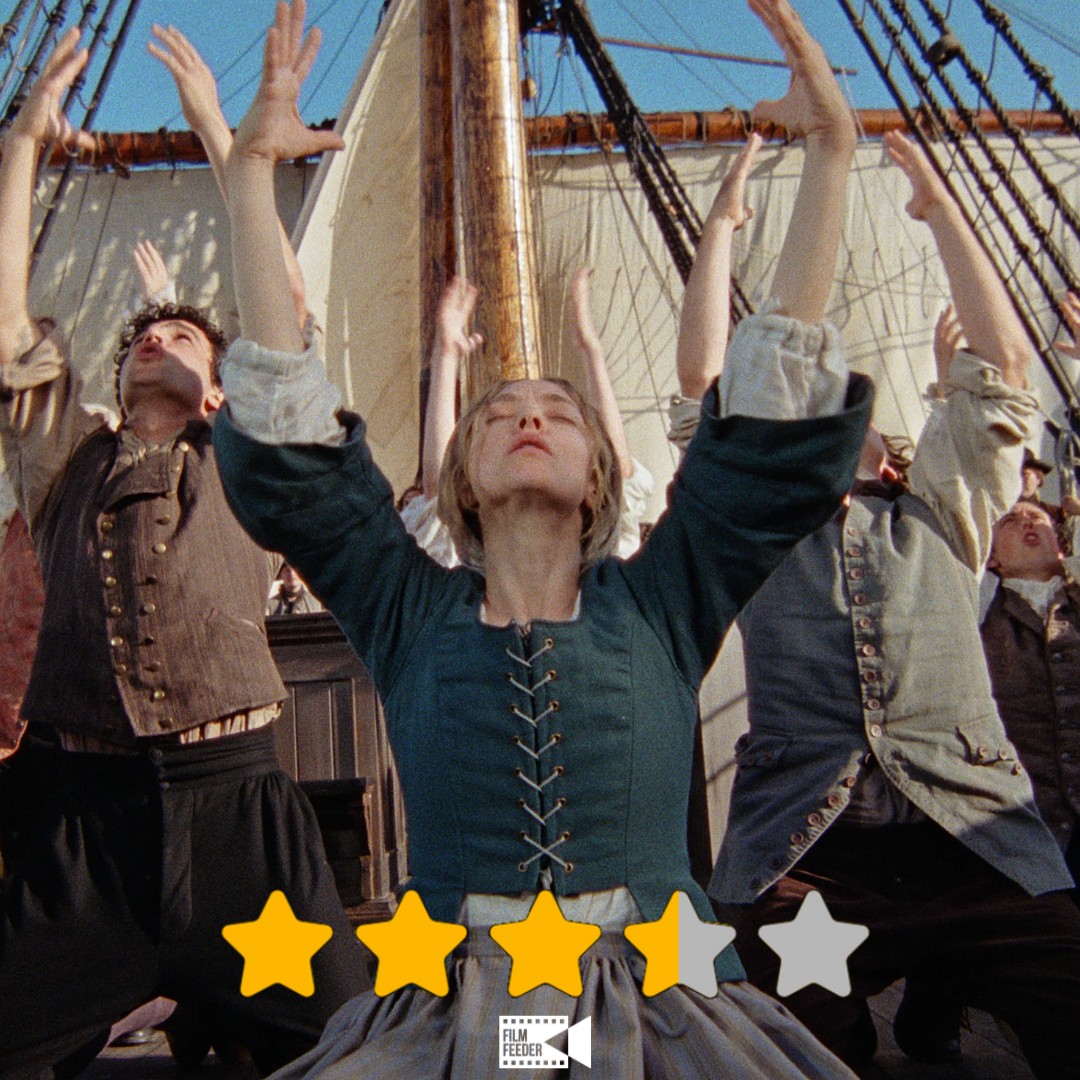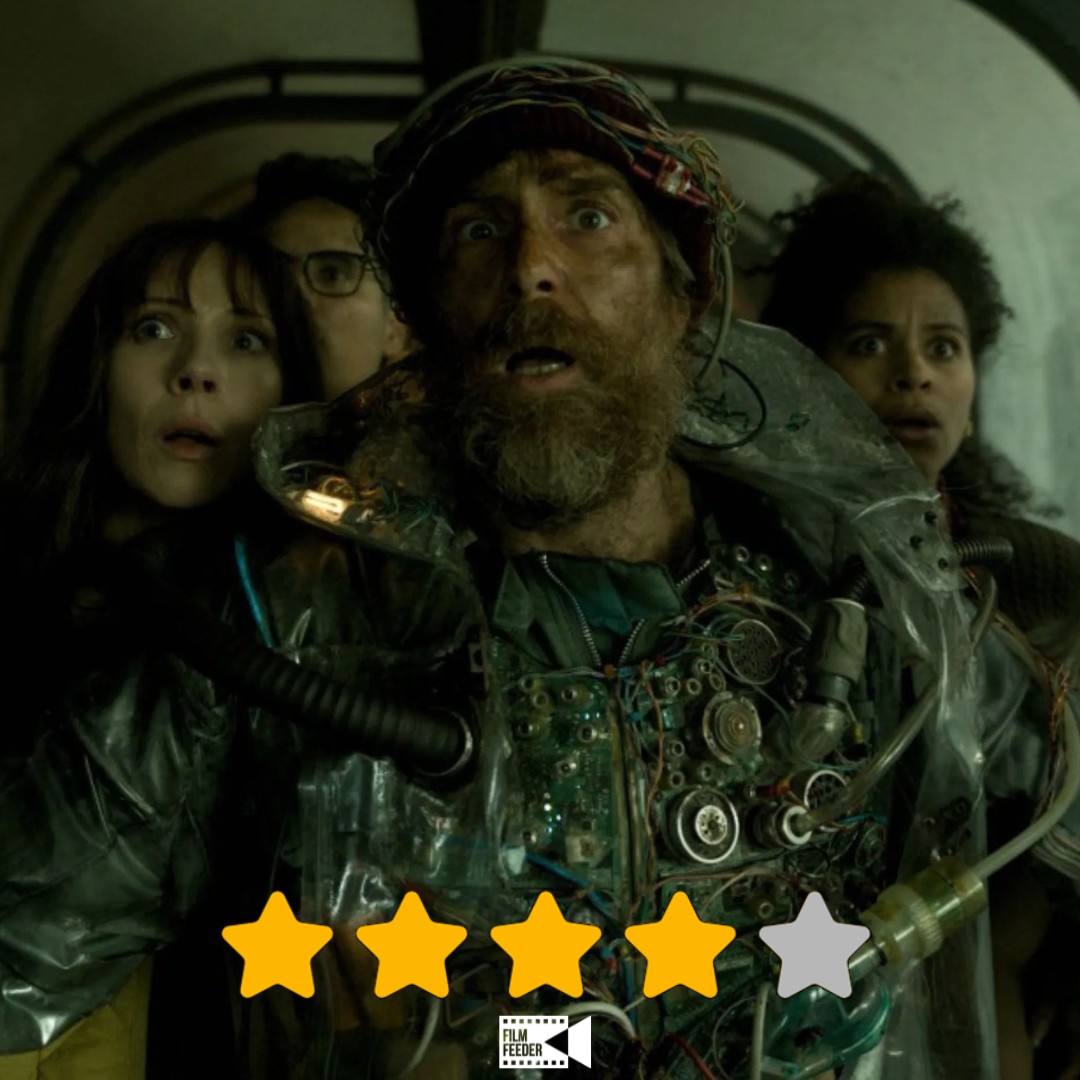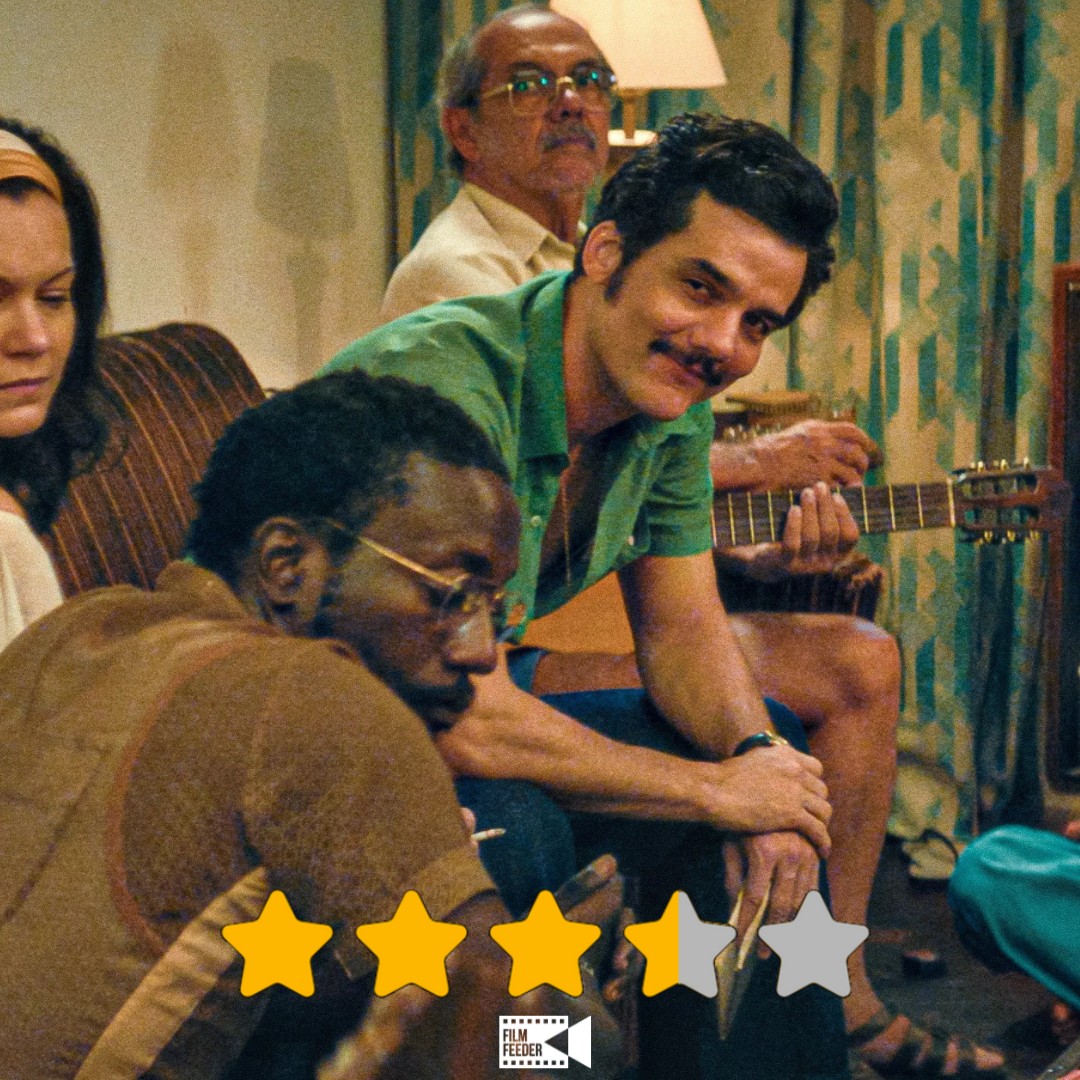
Hoard (2024, dir. Luna Carmoon)
Certificate: 18
Running Time: 126 mins
UK Distributor: Vertigo Releasing
UK Release Date: 17 May 2024
WHO’S IN HOARD?
Saura Lightfoot-Leon, Joseph Quinn, Lily-Beau Leach, Hayley Squires, Samantha Spiro, Deba Hekmat, Cathy Tyson, Nabil Elouahabi, Sandra Hale, Ceara Coveney
WHO’S BEHIND THE CAMERA?
Luna Carmoon (director, writer), Loran Dunn, Helen Simmons and Andrew Starke (producers), Nanu Segal (cinematographer), Rachel Durance (editor)
WHAT’S IT ABOUT?
A troubled teen (Leon) begins a dysfunctional relationship with an older man (Quinn)…
WHAT ARE MY THOUGHTS ON HOARD?
One of the many great things about watching a filmmaker make their feature debut is seeing what their initial vision entails before years of further experience develops it further. For instance, Danny Boyle’s playful and energetic style was truly established with his first film Shallow Grave thirty years ago, while last year’s Scrapper saw writer-director Charlotte Regan burst onto the scene with a similarly imaginative approach.
Hoard, from debuting writer-director Luna Carmoon, is nowhere near as easy to categorise. Her feature is a truly strange piece, riddled with eccentricity left and right in both its storytelling and its execution, while the filmmaker’s vision opts for an odd mixture of kitchen sink realism and outlandish absurdism that can be a fatal combo if not done with absolute care. Luckily, Carmoon manages to hold it all together for a wild and disarming ride, one that I ultimately more appreciated than truly loved.
The film begins in 1984, when a young girl named Maria (Lily-Beau Leach) is living with her single mother Cynthia (Hayley Squires). Their relationship is nothing but loving, although it is quite literally a mess, due to Cynthia’s borderline obsessive hoarding habits that has the two of them regularly go dumpster diving for all sorts of hidden treasures, which they clutter their house with alongside all sorts of unhygienic, and rather gross, trash. Soon, though, tragedy drives mother and daughter apart, with Maria going to live with kindly foster mother Michelle (Samantha Spiro).
Flash forward ten years, and Maria (now played by Saura Lightfoot-Leon) is an energetic teenager who’s just left school and spending her time hanging out with best friend Laraib (Deba Hekmat). However, the arrival of Michael (Joseph Quinn), one of Michelle’s former foster children who’s now in his late-20s and about to move into a house with his pregnant girlfriend Leah (Ceara Coveney), and an unexpected reminder of her mother, triggers a mental breakdown that… well, let’s just say it gets weird. And destructive. And very, very messy.
Without divulging any specific details, Hoard is a film that adopts an unusual identity, one that Carmoon is almost indulgent about flaunting. Her vision consists of encouraging some truly animalistic behaviour from her actors, who are directed to do crazy stuff like living room bullfighting and splattering bits of cottage pie over one another, as well as eroticising the act of hoarding unsustainable amounts of garbage through surreal, practically dreamlike sequences where the camera floats around these characters as they react lovingly to disposables like chalk and crumpled-up tin foil. It is bonkers in theory and somehow even weirder in execution, in part thanks to the actors’ deep commitment to their roles as they unleash utter chaos at every available opportunity, particularly young newcomer Saura Lightfoot-Leon who is more than game for much of the wild stuff that Carmoon has her and co-star Joseph Quinn doing.
Through her anarchic absurdist approach, one that often provokes rather than entertains, it is clear that the filmmaker takes heavily after films belonging to the Greek Weird Wave and Dogme 95 movements, specifically ones like Yorgos Lanthimos’s Dogtooth and Lars von Trier’s The Idiots which, like Hoard, engage in some bizarre and occasionally disgusting rituals that may not appease those with weak stomachs. In Carmoon’s case, she Trojan horses these attributes into a naturalistic British drama in the same vein as Mike Leigh or Andrea Arnold, which can often cause a bit of stylistic whiplash as the director attempts to combine her straightforward (at least, on paper) concept with a number of out-there, highly unorthodox scenes of pure disorder. Nevertheless, Carmoon remains in control as much as she can, only beginning to steer fully off-course whenever certain characters perhaps go too far in their bedlam, but she keeps the experience at a strong level of fascination, even as the protagonists commit increasingly rough and even violent acts towards themselves and each other.
It is a film that I can see a lot of viewers feeling very disconnected from, because while there is certainly an identifiable emotional centre to all this madness, the themes and their execution are often rather harsh and extreme, to where it’s easy for most people to not be as engaged with it. Personally speaking, I wouldn’t say that I was put off by it, for there are some bold choices that Carmoon makes with the narrative and her filmmaking style that I do genuinely admire, but there is a part of me that feels like the filmmaker could have reined her style in a bit more in order to get some of its points across. I look to a film like Scrapper, a film that I ultimately liked a lot more than Hoard, as a fine example of a visionary first-time filmmaker whose energetic style neatly complimented the emotional substance without overtaking it, something that this movie teeters on the edge of doing constantly, which in the end leaves me with less admiration for it than I would have personally liked.
Having said that, I know that there are definitely going to be people who are able to look past the mess and find the treasure buried deep within it, and for those people, perhaps Hoard shall be as enchanting to them as it wasn’t quite for myself. Whatever your opinion, though, just count your lucky stars that this movie isn’t showing in 4DX.
SO, TO SUM UP…
Hoard is a bold and provocative debut for filmmaker Luna Carmoon, who almost indulgently flaunts a style that leans into its unique flavour of anarchic absurdism, but often at the risk of alienating an audience with weaker stomachs.














0 Comments